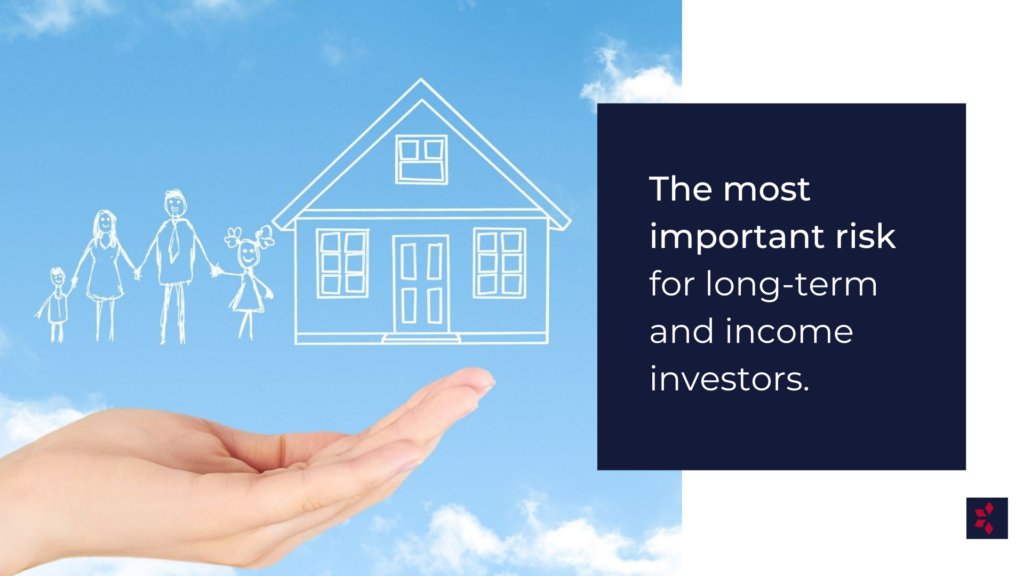The Most Important Risk for Long-Term and Income Investors

There are few lucrative investments without risk. Accepting no risk means investing in risk-free investments such as certificate of deposits and treasuries, placing money in savings accounts, or doing nothing by holding cash. The truth is that in today’s low-interest rate environment, you may have just traded one risk for another—you have accepted inflation risk.
To build wealth over time, investors need to accept risk, and short-term and long-term investors have different risks to prioritize. This article looks at the most important risk for long-term and income investors who take a long-term approach to investing.
Redefining Risk and Risk Tolerance
Risk can be defined as the possibility of not having the money you need at the time you need it, and your risk preference is affected by its consequence. For example, let’s say you are building an investment portfolio for your child, so that your child has the money to go to college. If the value of your investment portfolio declines, will you still be able to meet your objective in time? If not, what is your consequence? The possibility of not meeting your objective defines your risk, and the consequence of not meeting your objective affects your risk tolerance.
Possibility of Incurring a Loss That Sustains Over Your Investment Horizon
Return volatility is a good proxy for risk because financial market values fluctuate. While this measure of risk is useful in the short-term, it becomes less effective as the investment horizon lengthens.
For long-term investors, unless you intend to liquidate your investment assets at a specific point in the near future, bear markets are not really a risk for you. What often matters most is the possibility of incurring a loss that sustains over the investment horizon, and not the possibility of incurring short-term loss. In fact, bear markets could even allow you to purchase new stocks or increase existing positions within your investment portfolio at attractive prices, building your wealth.
This is especially true for “income investors” (those whose objective is to seek income generated from the investment portfolio ). For these investors, volatility will matter very little or perhaps not at all because it does not directly reflect the possibility of not being able to generate an adequate amount of cash flow over the next few decades. While the rest of the world is worrying about market values, income investors instead often focus on the stability and security of their income sources as their most important risk.
The Biggest Risk May Actually Be You
Evaluating long-term investment risk involves shifting your mindset away from a focus on short-term price movements to achieve your long-term investment objectives.
As much as you would like to prevent risk, the biggest risk may actually be you, your perception of risk, and how you react to market outcomes. Have you made a long-term investment plan and are you sticking to it? An investment manager can help by working together with you to define your financial objectives and align them with an appropriate strategy to achieve long-term, meaningful investment returns to protect and amplify your wealth to achieve your goals.
This content is provided for general informational purposes only and does not constitute financial, investment, tax, legal or accounting advice nor does it constitute an offer or solicitation to buy or sell any securities referred to. Individual circumstances and current events are critical to sound investment planning; anyone wishing to act on this content should consult with his or her financial partner or advisor.